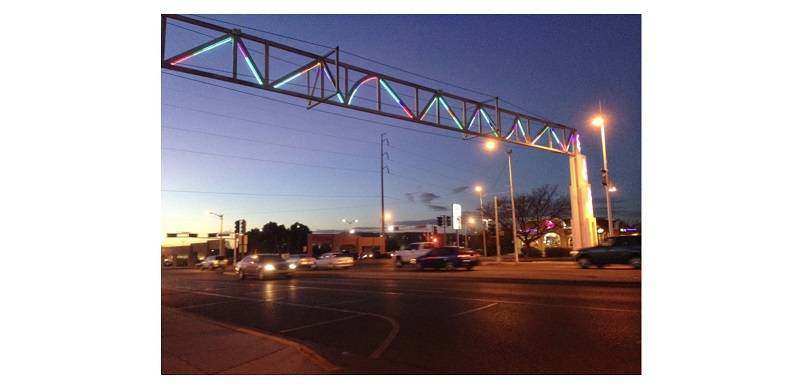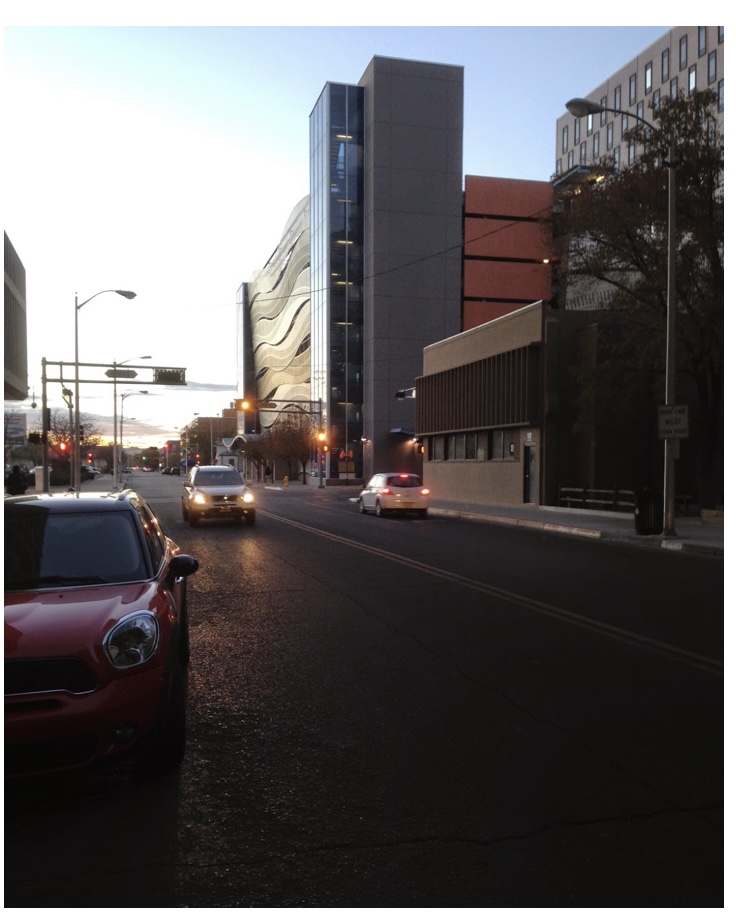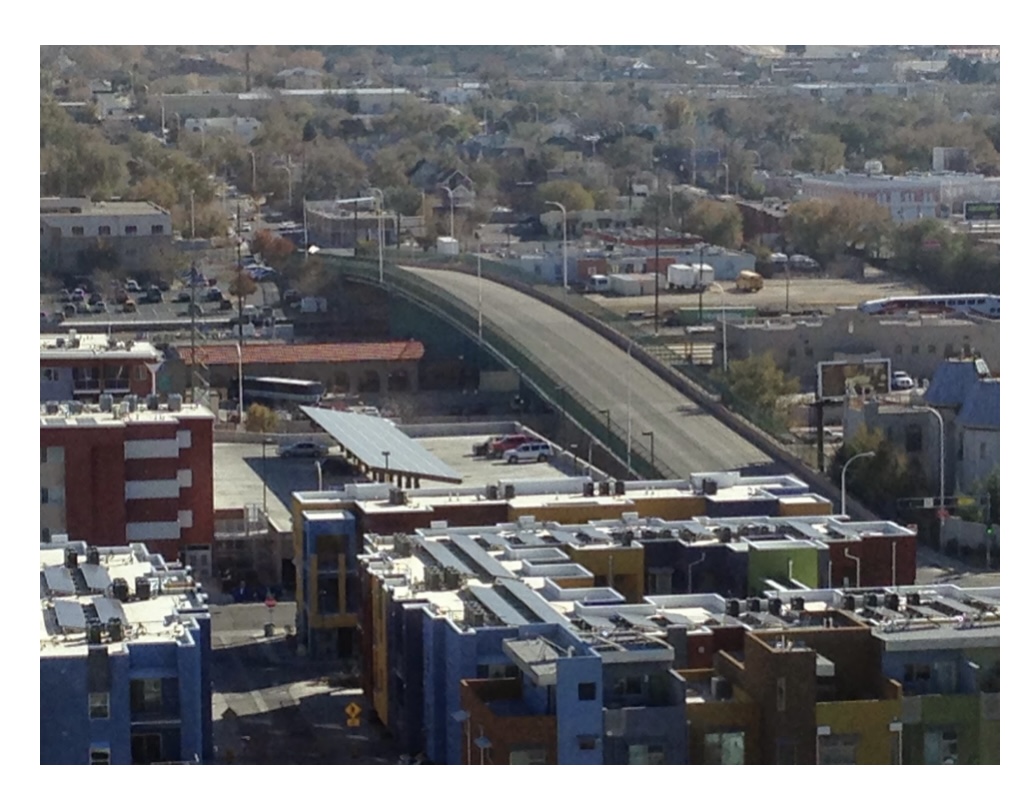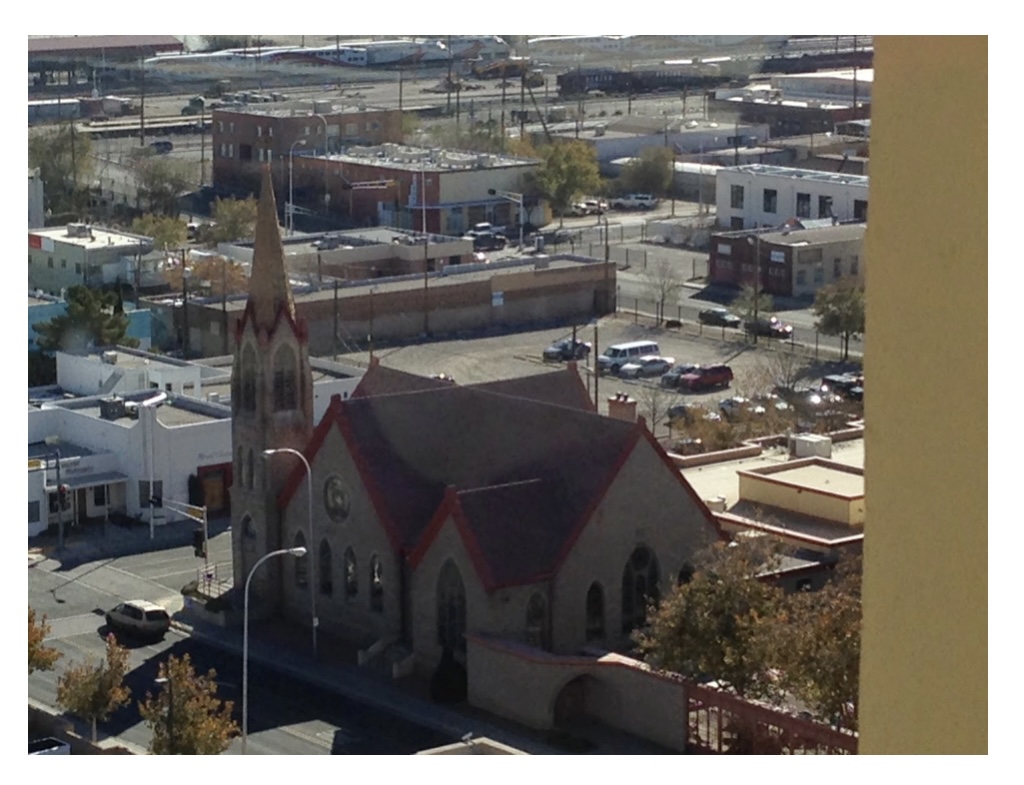
Everyone knows where Mexico is. But many don’t even know that there is a state in the US called New Mexico, let alone knowing where it is located.
New Mexico is located just north of Mexico. To the west is Arizona, to the north is Colourado, and to the east and the south is Texas. The state is rich in minerals. Those minerals gave it a rich history. The Spanish conquistadors were lured to it by the prospect of silver and gold in the 1500’s. They made it a Spanish colony in 1598 and called it Nuevo Mexico. When Mexico gained independence from Spain in 1821, it absorbed New Mexico. The US acquired the region after the Mexican-American War of 1846-48, and gave it statehood in 1912.
There’s something else about the state which is noteworthy. Wikipedia states, “New Mexico has a significant U.S. military presence, including White Sands Missile Range, and strategically valuable federal research centers, such as Sandia and Los Alamos National Laboratories. The state hosted several key facilities of the Manhattan Project, which developed the world’s first atomic bomb, and was the site of the first nuclear test, Trinity.”
 In area, the state ranks fifth but in population it ranks 36th in the US. The state’s surface is covered with beautiful deserts, mesas, mountains, canyons, caves and buttes which is why the state is often referred to as the Land of Enchantment. I had been to Santa Fe, the cultural and political capital of the state a few times. The architecture, the food and the gorge over the Rio Grande were memorable.
In area, the state ranks fifth but in population it ranks 36th in the US. The state’s surface is covered with beautiful deserts, mesas, mountains, canyons, caves and buttes which is why the state is often referred to as the Land of Enchantment. I had been to Santa Fe, the cultural and political capital of the state a few times. The architecture, the food and the gorge over the Rio Grande were memorable.
To get to Santa Fe, I would fly into Albuquerque, the largest city in the state. I would rent a car and drive to Santa Fe without thinking much about Albuquerque itself. One day, the opportunity came to visit the town.
When I told friends that I was going to Albuquerque, just about everyone said: “Lucky you–that is where Breaking Bad was filmed.” It’s a famous TV crime drama. The city was probably worth visiting for that reason alone, I was told.
The town’s name was so unique that I had to research it. I found out that it was named after a noteworthy duke in Spain who had governed the province of Andalusia.
As the Southwest Airlines Boeing 737 began its approach into Albuquerque, it descended beneath the clouds. A fascinating vista opened up. The landscape showed a rugged emptiness dotted with mountains – it seemed to come straight out of a western. Mackenna’s Gold came to mind. In that film, the main star was not Gregory Peck or Omar Sharif, both of whom are in the film, but the high desert, mountainous country.
 By the time I got into a cab and settled in to check my emails, I was already in the downtown area. It looked deserted, sparse, and quiet, as if something were imminent. The air was still.
By the time I got into a cab and settled in to check my emails, I was already in the downtown area. It looked deserted, sparse, and quiet, as if something were imminent. The air was still.
I had experienced this type of emptiness before, in a movie theatre, walking the streets of a small town in Kansas with Philip Seymour Hoffman. The streets in that town, where something had happened in In Cold Blood, were also empty, quiet and still.
Now I was in a high-rise building. The view from the 11th floor was awesome. When I left the building later in the day, the downtown streets were silent. A few incoming cars with their headlights on were silhouetted by the setting sun, creating an eerie sensation.
I was anxious to learn the cultural history of Albuquerque and asked around. I was advised to watch the Breaking Bad series, but warned that the first couple of episodes might be hard to take. It would be found on Netflix streaming. I was also advised to read Blood and Thunder. That, too, I was told, had some difficult scenes.
The next day, a person took me to a window and gave me an aerial tour, pointing out the places where Breaking Bad had been filmed. This included a curved bridge that spanned the Santa Fe railroad tracks.
Not too far away was a church, aptly located in case the sinners might want to seek repentance.
I learned that many films had been shot in the city, courtesy of an economic incentive program launched by a former governor. I also heard about a town called Rawson and a place in Nevada near the border called Area 51. Both were associated with extraterrestrials.
Getting back to the airport proved to be an adventure. This was not the kind of town where you could hail a cab from the street. You had to ping Uber via your smartphone. It showed up on the dot. This was going to be my first shared ride. The tension dissipated when I found out that the driver was a woman with a smile. She had moved to the city a few years ago from Montana. Since there was more than an hour before my flight, I asked her to give me a brief city tour. She drove me to Nob Hill, an eclectic shopping and eating area just across the University of New Mexico, totally unlike the Nob Hill in San Francisco. She also showed me the gateway to iconic Route 66, appropriately lit up by neon lights.
Then we began to head to the airport. I asked her about what there was to see in Montana. That really got her started. All I remember is that at one corner of the state was Yellowstone. As we neared the airport, I pointed out to her that a black helicopter had been following the same route as us. It was noisy and I wondered what it was up to.
She said it was going to land at an airbase nearby. I had seen two C-130s lifting off as we were coming in to land: dark, heavy, lumbering beasts with four propellers, an ancient design that had stood the test of time. It had a starring role in the movie Blackhawk Down. And, of course, it was the plane which crashed with General Zia in it, along with several other top generals, the US ambassador to Pakistan and his military attaché. The driver said the airbase was close to the commercial runway, but the base had its own runway.
We arrived at the airport on time and went past an empty desk for New Mexico Airlines. I had spotted two propeller planes on the runway with New Mexico Airlines written on the fuselage when I had landed, and wondered whether they were props in a movie. Later, I found out that the airline just flew within the state, but the planes looked like they would give you a great ride. Unfortunately, the airline’s list of suspended destinations exceeded the list of active destinations. Perhaps most people just got on the freeway and pressed on the gas.
As the Boeing 737 lifted off the runway, I felt a tug in my stomach. The city had just begun to reveal its secrets to me. I would have to come back, drive around the city and uncover the mysteries.
There is so much more to see there including the botanical gardens, art and historical museums, and fine restaurants. In October, the city hosts the International Balloon Fiesta, the world’s largest gathering of hot-air balloons. There is also the Sandia Peak Tramway, the world’s second-longest passenger aerial tramway, which runs from the northeast edge of the city to Sandia Peak, the summit of a ski resort, located at an elevation of 3,100 meters.
P.S. I had selected Southwest Airlines for the roundtrip. They had the best non-stops and who knew the southwest better? Of course, the airfare had been a bit steep, at $800 for a two-hour haul. But then the outbound had been two-thirds empty and they had not canceled it. Perhaps I was paying for the empty seats. The inbound flight took off on time and landed on time. What more could one ask for? And did it really matter that it had only one toilet in the back, unlike every other 737 I had ever flown in. When I pointed that out to the flight attendant who was seated in the back, she said you could use the one in the front. No other airline would allow that. Of course, most had first class seats and these did not exist on any Southwest plane. I was seated in the exit row, which just had two seats in it. A luxury. Did it really matter that the legroom was minimal?
New Mexico is located just north of Mexico. To the west is Arizona, to the north is Colourado, and to the east and the south is Texas. The state is rich in minerals. Those minerals gave it a rich history. The Spanish conquistadors were lured to it by the prospect of silver and gold in the 1500’s. They made it a Spanish colony in 1598 and called it Nuevo Mexico. When Mexico gained independence from Spain in 1821, it absorbed New Mexico. The US acquired the region after the Mexican-American War of 1846-48, and gave it statehood in 1912.
There’s something else about the state which is noteworthy. Wikipedia states, “New Mexico has a significant U.S. military presence, including White Sands Missile Range, and strategically valuable federal research centers, such as Sandia and Los Alamos National Laboratories. The state hosted several key facilities of the Manhattan Project, which developed the world’s first atomic bomb, and was the site of the first nuclear test, Trinity.”
 In area, the state ranks fifth but in population it ranks 36th in the US. The state’s surface is covered with beautiful deserts, mesas, mountains, canyons, caves and buttes which is why the state is often referred to as the Land of Enchantment. I had been to Santa Fe, the cultural and political capital of the state a few times. The architecture, the food and the gorge over the Rio Grande were memorable.
In area, the state ranks fifth but in population it ranks 36th in the US. The state’s surface is covered with beautiful deserts, mesas, mountains, canyons, caves and buttes which is why the state is often referred to as the Land of Enchantment. I had been to Santa Fe, the cultural and political capital of the state a few times. The architecture, the food and the gorge over the Rio Grande were memorable.To get to Santa Fe, I would fly into Albuquerque, the largest city in the state. I would rent a car and drive to Santa Fe without thinking much about Albuquerque itself. One day, the opportunity came to visit the town.
When I told friends that I was going to Albuquerque, just about everyone said: “Lucky you–that is where Breaking Bad was filmed.” It’s a famous TV crime drama. The city was probably worth visiting for that reason alone, I was told.
The town’s name was so unique that I had to research it. I found out that it was named after a noteworthy duke in Spain who had governed the province of Andalusia.
As the Southwest Airlines Boeing 737 began its approach into Albuquerque, it descended beneath the clouds. A fascinating vista opened up. The landscape showed a rugged emptiness dotted with mountains – it seemed to come straight out of a western. Mackenna’s Gold came to mind. In that film, the main star was not Gregory Peck or Omar Sharif, both of whom are in the film, but the high desert, mountainous country.
 By the time I got into a cab and settled in to check my emails, I was already in the downtown area. It looked deserted, sparse, and quiet, as if something were imminent. The air was still.
By the time I got into a cab and settled in to check my emails, I was already in the downtown area. It looked deserted, sparse, and quiet, as if something were imminent. The air was still.I had experienced this type of emptiness before, in a movie theatre, walking the streets of a small town in Kansas with Philip Seymour Hoffman. The streets in that town, where something had happened in In Cold Blood, were also empty, quiet and still.
Now I was in a high-rise building. The view from the 11th floor was awesome. When I left the building later in the day, the downtown streets were silent. A few incoming cars with their headlights on were silhouetted by the setting sun, creating an eerie sensation.
I was anxious to learn the cultural history of Albuquerque and asked around. I was advised to watch the Breaking Bad series, but warned that the first couple of episodes might be hard to take. It would be found on Netflix streaming. I was also advised to read Blood and Thunder. That, too, I was told, had some difficult scenes.
The next day, a person took me to a window and gave me an aerial tour, pointing out the places where Breaking Bad had been filmed. This included a curved bridge that spanned the Santa Fe railroad tracks.
Not too far away was a church, aptly located in case the sinners might want to seek repentance.
I learned that many films had been shot in the city, courtesy of an economic incentive program launched by a former governor. I also heard about a town called Rawson and a place in Nevada near the border called Area 51. Both were associated with extraterrestrials.
Getting back to the airport proved to be an adventure. This was not the kind of town where you could hail a cab from the street. You had to ping Uber via your smartphone. It showed up on the dot. This was going to be my first shared ride. The tension dissipated when I found out that the driver was a woman with a smile. She had moved to the city a few years ago from Montana. Since there was more than an hour before my flight, I asked her to give me a brief city tour. She drove me to Nob Hill, an eclectic shopping and eating area just across the University of New Mexico, totally unlike the Nob Hill in San Francisco. She also showed me the gateway to iconic Route 66, appropriately lit up by neon lights.
Then we began to head to the airport. I asked her about what there was to see in Montana. That really got her started. All I remember is that at one corner of the state was Yellowstone. As we neared the airport, I pointed out to her that a black helicopter had been following the same route as us. It was noisy and I wondered what it was up to.

She said it was going to land at an airbase nearby. I had seen two C-130s lifting off as we were coming in to land: dark, heavy, lumbering beasts with four propellers, an ancient design that had stood the test of time. It had a starring role in the movie Blackhawk Down. And, of course, it was the plane which crashed with General Zia in it, along with several other top generals, the US ambassador to Pakistan and his military attaché. The driver said the airbase was close to the commercial runway, but the base had its own runway.
I was anxious to learn the cultural history of Albuquerque and asked around. I was advised to watch the Breaking Bad series, but warned that the first couple of episodes might be hard to take
We arrived at the airport on time and went past an empty desk for New Mexico Airlines. I had spotted two propeller planes on the runway with New Mexico Airlines written on the fuselage when I had landed, and wondered whether they were props in a movie. Later, I found out that the airline just flew within the state, but the planes looked like they would give you a great ride. Unfortunately, the airline’s list of suspended destinations exceeded the list of active destinations. Perhaps most people just got on the freeway and pressed on the gas.
As the Boeing 737 lifted off the runway, I felt a tug in my stomach. The city had just begun to reveal its secrets to me. I would have to come back, drive around the city and uncover the mysteries.
There is so much more to see there including the botanical gardens, art and historical museums, and fine restaurants. In October, the city hosts the International Balloon Fiesta, the world’s largest gathering of hot-air balloons. There is also the Sandia Peak Tramway, the world’s second-longest passenger aerial tramway, which runs from the northeast edge of the city to Sandia Peak, the summit of a ski resort, located at an elevation of 3,100 meters.
P.S. I had selected Southwest Airlines for the roundtrip. They had the best non-stops and who knew the southwest better? Of course, the airfare had been a bit steep, at $800 for a two-hour haul. But then the outbound had been two-thirds empty and they had not canceled it. Perhaps I was paying for the empty seats. The inbound flight took off on time and landed on time. What more could one ask for? And did it really matter that it had only one toilet in the back, unlike every other 737 I had ever flown in. When I pointed that out to the flight attendant who was seated in the back, she said you could use the one in the front. No other airline would allow that. Of course, most had first class seats and these did not exist on any Southwest plane. I was seated in the exit row, which just had two seats in it. A luxury. Did it really matter that the legroom was minimal?

